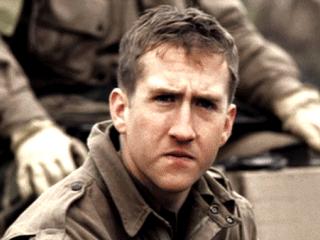Private Roy Cobb was a soldier in Easy Company, 2nd Battalion, 506th Parachute Infantry Regiment, 101st Airborne Division of the United States Army during World War 2. He was born in an unknown New York location on 18 June 1914.An original Toccoa soldier, Cobb enlisted in the Army in 1933 and had seen action, prior to Paratrooper training, while in...
Show more »
Private Roy Cobb was a soldier in Easy Company, 2nd Battalion, 506th Parachute Infantry Regiment, 101st Airborne Division of the United States Army during World War 2. He was born in an unknown New York location on 18 June 1914.An original Toccoa soldier, Cobb enlisted in the Army in 1933 and had seen action, prior to Paratrooper training, while in the 1st Armored Division's attack on North Africa. Cobb's troop ship was torpedoed by a German U-boat, but he survived and volunteered for the Paratroopers upon return to the States. Cobb then trained under the command of Captain Herbert Sobel at Camp Toccoa, Georgia, as well as achieved tactical training at Camp Mackall, North Carolina and Aldbourne, England in preparation for the Invasion of Normandy, France. Before jumping from the plane on 6 June 1944, Cobb was hit by flak shrapnel which penetrated his plane and was ordered by his commanding officer to stay aboard the plane and return to England for medical help.Cobb reunited with his unit after their return to England from France. He later participated in the jump into The Netherlands for Operation Market Garden, followed by the 'tailgate-jump' into Bastogne for The Battle of the Ardennes, commonly known as The Battle of the Bulge . From there, he progressed to Haguenau, where he participated in a nighttime river-crossing patrol for German prisoners: one German prisoner was left behind at the riverbank because he was too badly injured to bring back. Cobb, weary of the soldier's cries, fired a grenade at the German, which killed him instantly. Hours later, a drunk Cobb assaulted Lieutenant Jack Foley, yet his life was spared when Foley pressed for a courts-martial instead of summarily executing Cobb, to Colonel Robert Sink's disdain. Cobb was tried and released from the Army a short time later, with an undisclosed-grade discharge.David Webster, a fellow Toccoa soldier and author of Parachute Infantry: An American Paratrooper's Memoir of D-Day and the Fall of the Third Reich, described Cobb as invariably good-natured , which seems to largely defy the portrayal given of him in the Spielberg/Hanks HBO miniseries production of Band of Brothers; in the series, Cobb is depicted as being abrasive, bitter, cowardly and distant. In his nearly 12 years in the Army, Cobb was never promoted beyond Private, for reasons unknown.Nothing else is known about Cobb following the war, except that he moved to the Tonawanda area of New York and settled there, where he died on an unknown date in January, 1990.
Show less «



